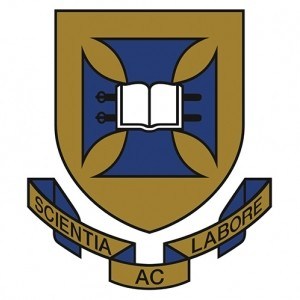Photos of university / #usqedu
Widen your GIS skill set
USQ’s Master of Spatial Science Technology (Geographic Information Systems) is ideal if you have a three or four-year bachelor degree in a field other than engineering and you want to extend your knowledge in Geographic Information Systems (GIS).
Through this flexible 16 unit master’s degree you have the option to select GIS courses, including web-based geographic information systems, land studies and photogrammetry, as well as courses from related disciplines such as sustainable development, information systems and technology management.
You will also develop research methodology skills to complete a research project. Previous student projects have included mapping remnant vegetation in Western Downs, Queensland using high resolution ALOS satellite data.
The research project and dissertation is a stepping stone to further research degrees such as a PhD.
Graduate sooner
You may be able to graduate sooner with a Graduate Diploma of Spatial Science Technology after completing 8 units or a Graduate Certificate in Spatial Science Technology after completing 4 units.
Program structure
Courses to be studiedUnits
7 x Group A courses7
plus 3 x Group B courses3
plus 6 x Group C courses6
Total16
Course codeCourse name
Group A Courses1:
GIS1402Geographic Information Systems
GIS3405Spatial Analysis and Modelling
GIS3406Remote Sensing and Image Processing
GIS3407GIS Programming and Visualisation
GIS4407Web Based Geographic Information System
SVY3202Photogrammetry and Remote Sensing
SVY1110Introduction to Global Positioning System
Group B Courses:Select three courses from the following:
CIS8000Global Information Systems Strategy
CIS8010Information Systems Project Management
ENG8101Technological Impact and its Management
ENG8103Management of Technological Risk
ENG8104Asset Management in an Engineering Environment
ENV4204Environmental Technology
LAW2107Environmental Law
SVY3200Land Administration
URP3201Sustainable Urban Design and Development
URP4203Urban and Regional Planning
SVY4309Practice Management for Spatial Scientists
Group C Courses:
ENG8001Masters Dissertation A
ENG8002Masters Dissertation 2
ENG8411Masters Dissertation B
Footnotes
1 A student with a previous undergraduate degree in the spatial sciences may opt to select fewer courses in Group A than required (and thus will need more courses from Group B), upon approval by the Head of Discipline.
2 Four units.
Entry requirements
- 3 or 4-year undergraduate degree, or equivalent, in an approved discipline
English Language Requirements
Domestic and international students from a non-English speaking background are required to satisfy English Language requirements. This program requires a minimum of IELTS 6.5 or equivalent.
If you do not meet the English language requirements you may apply to study a University-approved English language program.
International entry requirements
English Language Requirements
Domestic and international students from a non-English speaking background are required to satisfy English Language requirements. This program requires a minimum of IELTS 6.5 or equivalent.
If you do not meet the English language requirements you may apply to study a University-approved English language program.
Pre-requisites
- 3 or 4-year undergraduate degree, or equivalent, in an approved discipline
You may be able to apply for scholarships to help with your study costs.




